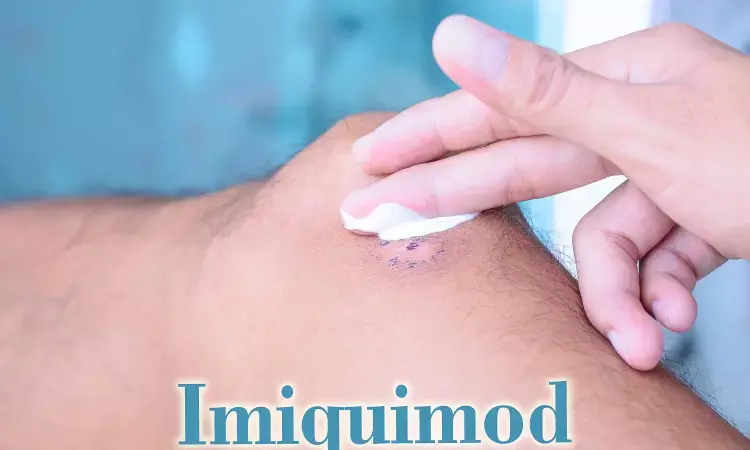- Home
- Medical news & Guidelines
- Anesthesiology
- Cardiology and CTVS
- Critical Care
- Dentistry
- Dermatology
- Diabetes and Endocrinology
- ENT
- Gastroenterology
- Medicine
- Nephrology
- Neurology
- Obstretics-Gynaecology
- Oncology
- Ophthalmology
- Orthopaedics
- Pediatrics-Neonatology
- Psychiatry
- Pulmonology
- Radiology
- Surgery
- Urology
- Laboratory Medicine
- Diet
- Nursing
- Paramedical
- Physiotherapy
- Health news
- Fact Check
- Bone Health Fact Check
- Brain Health Fact Check
- Cancer Related Fact Check
- Child Care Fact Check
- Dental and oral health fact check
- Diabetes and metabolic health fact check
- Diet and Nutrition Fact Check
- Eye and ENT Care Fact Check
- Fitness fact check
- Gut health fact check
- Heart health fact check
- Kidney health fact check
- Medical education fact check
- Men's health fact check
- Respiratory fact check
- Skin and hair care fact check
- Vaccine and Immunization fact check
- Women's health fact check
- AYUSH
- State News
- Andaman and Nicobar Islands
- Andhra Pradesh
- Arunachal Pradesh
- Assam
- Bihar
- Chandigarh
- Chattisgarh
- Dadra and Nagar Haveli
- Daman and Diu
- Delhi
- Goa
- Gujarat
- Haryana
- Himachal Pradesh
- Jammu & Kashmir
- Jharkhand
- Karnataka
- Kerala
- Ladakh
- Lakshadweep
- Madhya Pradesh
- Maharashtra
- Manipur
- Meghalaya
- Mizoram
- Nagaland
- Odisha
- Puducherry
- Punjab
- Rajasthan
- Sikkim
- Tamil Nadu
- Telangana
- Tripura
- Uttar Pradesh
- Uttrakhand
- West Bengal
- Medical Education
- Industry
Month long treatment with Imiquimod may induce regression of lentigo maligna melanoma

A new study by Marie Daude and team showed that after a month of therapy, imiquimod lowers the lentigo maligna surface, without increasing the risk of intralesional excision, and with favorable cosmetic results. The findings of this study were published in the European Academy of Dermatology and Venereology.
On photoexposed skin, lentigo maligna (LM) is a melanocytic proliferation that has the potential to develop into LM melanoma. The suggested initial course of therapy is surgery. Without international agreement, excision margins of 5 to 10 mm still exist. Numerous investigations have demonstrated that the immunomodulator imiquimod causes LM regression. In order to compare the effects of imiquimod and a placebo in neoadjuvant situations, this research was conducted.
A phase III prospective, multicenter, randomized clinical research was conducted. In a 1:1 ratio, patients were randomly randomized to take imiquimod or a placebo for 4 weeks, after which they underwent LM excision 4 weeks later. Extra-lesional excision was the primary objective, with a margin of 5 mm from the remaining pigmentation following imiquimod or vehicle. Secondary outcomes were relapse-free duration, number of complete remissions, number of revision procedures to acquire extra-lesional excisions, and gain on surface excised between the two groups.
The key findings of this study were:
1. 283 patients in all took part in the trial; 247 of them made up the modified ITT population, along with 121 placebo recipients and 126 imiquimod recipients.
2. In 116 (92%) imiquimod patients and 102 (84%) placebo patients, the first extralesional extirpation was done; the difference between the two groups was not statistically significant (p = 0.0743).
3. Regarding the surface of LM, imiquimod considerably (p 0.001) decreased the LM surface (4.6-3.1 cm2) more than the placebo (3.9-4.1 cm2) did.
Before performing excision on big lentigo maligna lesions in potentially disfiguring places, healthcare professionals should think about using imiquimod as a neoadjuvant.
Reference:
Daude, M., Dinulescu, M., Nguyen, J., Maillard, H., Le Duff, F., Machet, L., Beylot‐Barry, M., Legoupil, D., Wierzbicka‐Hainaut, E., Bedane, C., Leccia, M. T., Debarbieux, S., Meyer, N., Khammari, A., & Dréno, B. (2023). Efficacy of imiquimod in the management of lentigo maligna. In Journal of the European Academy of Dermatology and Venereology. Wiley. https://doi.org/10.1111/jdv.19141
Neuroscience Masters graduate
Jacinthlyn Sylvia, a Neuroscience Master's graduate from Chennai has worked extensively in deciphering the neurobiology of cognition and motor control in aging. She also has spread-out exposure to Neurosurgery from her Bachelor’s. She is currently involved in active Neuro-Oncology research. She is an upcoming neuroscientist with a fiery passion for writing. Her news cover at Medical Dialogues feature recent discoveries and updates from the healthcare and biomedical research fields. She can be reached at editorial@medicaldialogues.in
Dr Kamal Kant Kohli-MBBS, DTCD- a chest specialist with more than 30 years of practice and a flair for writing clinical articles, Dr Kamal Kant Kohli joined Medical Dialogues as a Chief Editor of Medical News. Besides writing articles, as an editor, he proofreads and verifies all the medical content published on Medical Dialogues including those coming from journals, studies,medical conferences,guidelines etc. Email: drkohli@medicaldialogues.in. Contact no. 011-43720751


